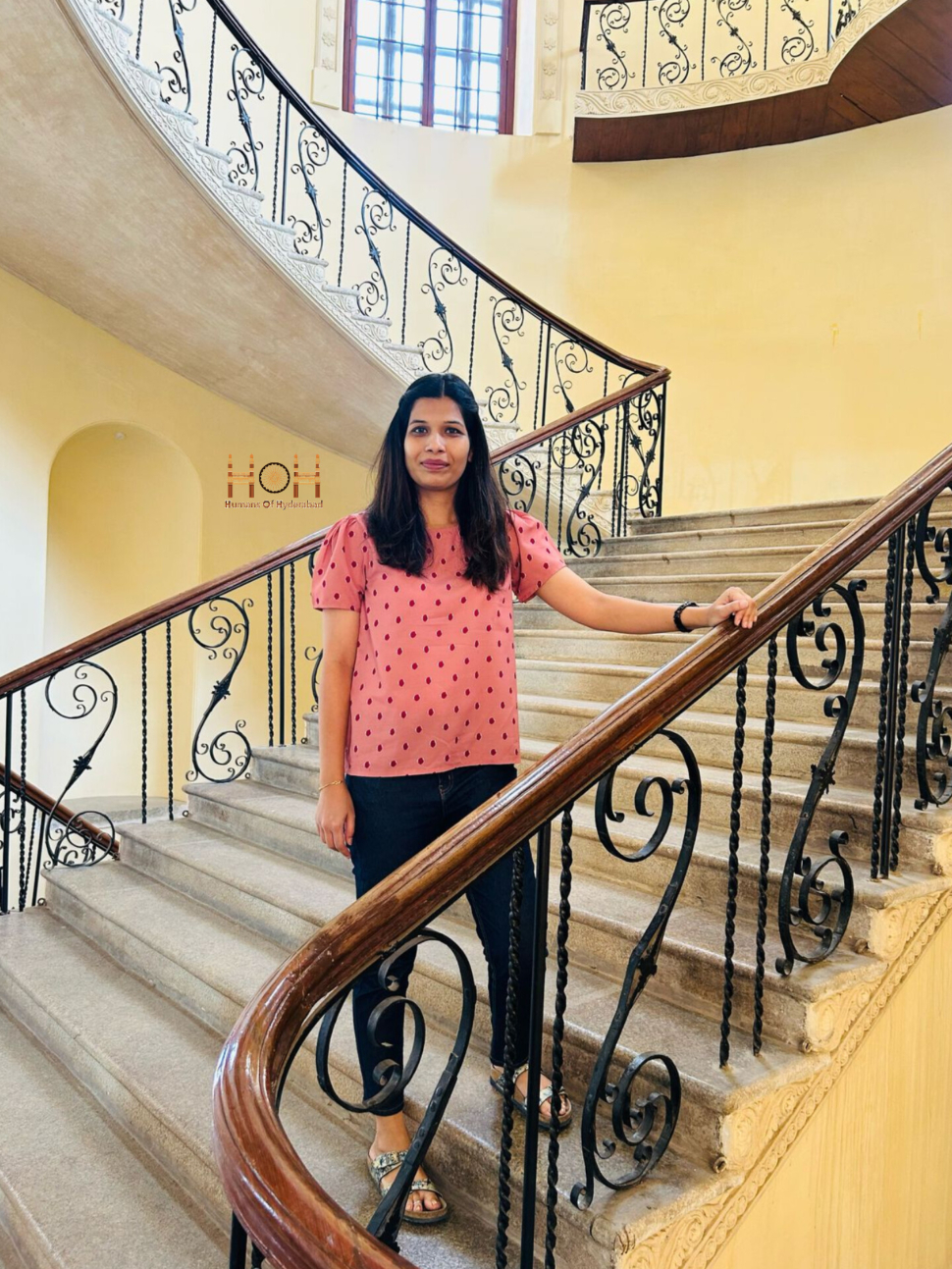“I’m Naveena Ghanate, and I’ve been a journalist for more than eight years, mostly in print. But I began in a very different world. If someone had told me in college that I’d leave a well-paying software job in the US to cover political rallies with a mic in hand, I would have laughed.
I come from a middle class but strict family. My father worked as an RTC conductor and my mother was with BSNL. They worked hard to give us three siblings a good education.
I studied at St. Anthony’s High School and in Sri Chaitanya, chose MPC because I was good at math, and cleared EAMCET. I pursued Computer Science Engineering at G. Narayanamma Institute of Technology & Sciences – it is a reputed women’s college.
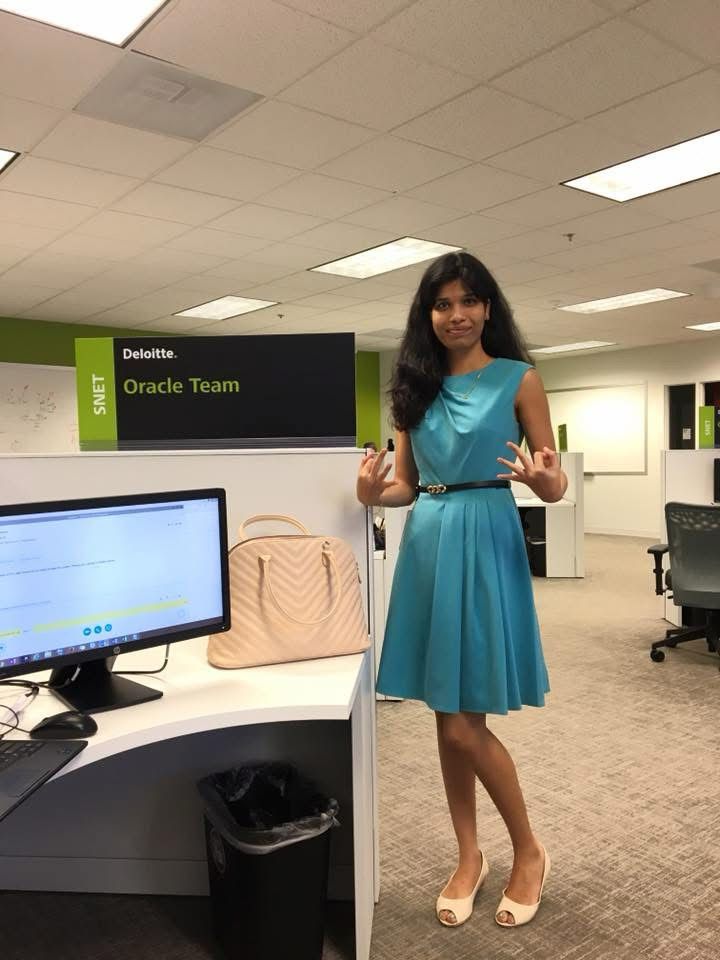
I got placed at Deloitte during campus placements. It was my first interview, and I cleared it. My then-friend Bharat, now my husband, helped me prepare for the aptitude rounds. I joined as a BTA and worked on PeopleSoft Administrator. In my second year, I received the PMP award, possibly youngest among the awardees then. I managed PeopleSoft, Hyperion and Oracle server administration. I was always aspiring to do a Peoplesoft system upgrade.
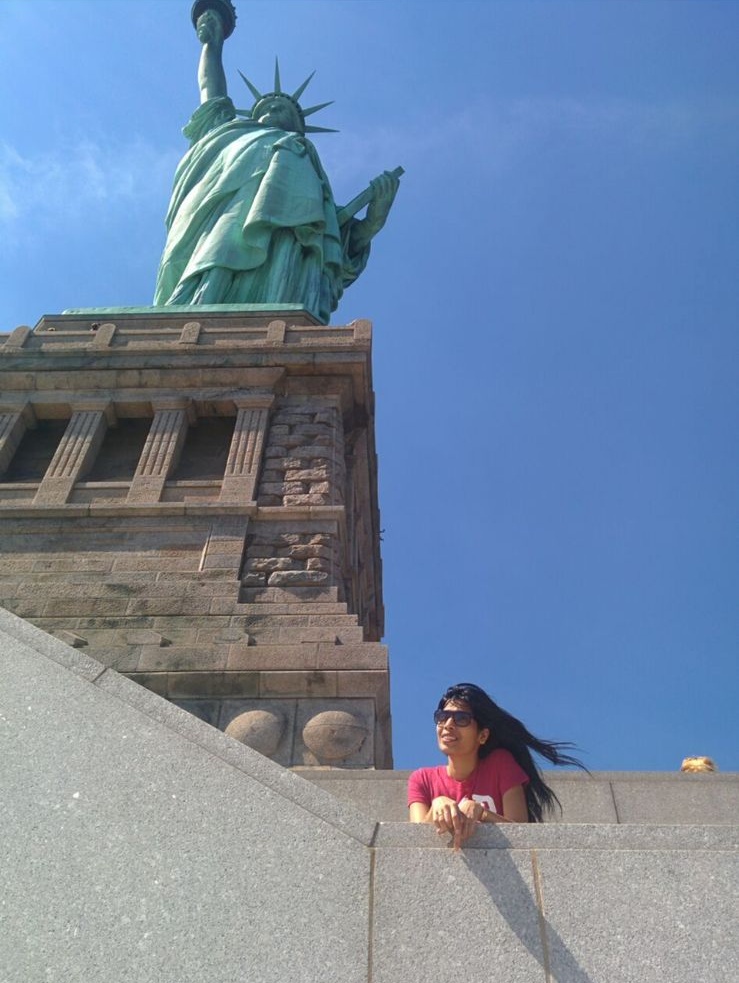
That opportunity finally came and took me to the US—first to Florida for about eight months, then to Denver in 2016. As I was about to realise my dream of doing System upgrade, just a week at Denver, I realised I wasn’t happy at all. I called my dad and told him I wanted to return. He simply said, “Come.” My mom asked me to think twice, but I had already made up my mind. I resigned and flew back to Hyderabad without a plan and very less savings.
Looking back, the signs were always there. In school Parliament, I was on the press team. In college, I was wall magazine coordinator. Even at Deloitte, I volunteered to be part of the internal press.
One day, I was watching 2014 election coverage on TV and saw reporter asking sharp political questions to a prominent Telangana politician. I felt a jolt. I thought, “I want to do that.” Around the same time, I saw a scroll on HMTV about an entrance exam for aspiring journalists. I applied secretly, cleared it, and joined Hans India as a trainee for their website.
At Hans India, I went to the office in the morning, wrote reports, and returned back to my full time job as techie. I was there for about a month & since it was taking toll on my health, I left it.
In 2016, After formally quitting, I took a break for three months. My parents suggested I return to software, but I transitioned from IT to journalism.
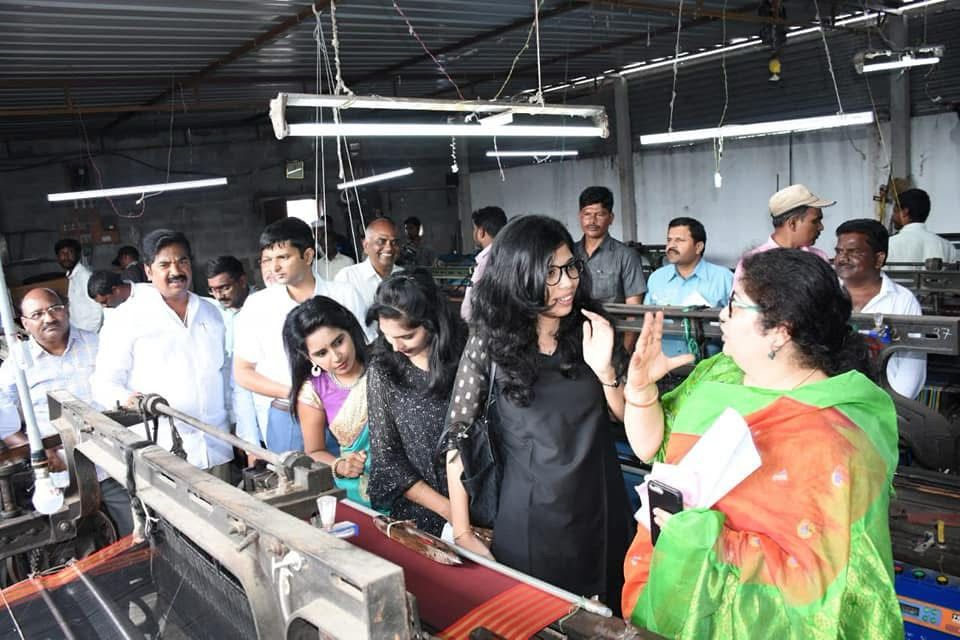
I joined Telugu360 as a remote reporter. I scanned newspapers, tracked TV, and wrote short reports, did interview startups. Eventually, I started writing opinion pieces. One day, the management asked me to write a birthday article on KTR. It was posted on Twitter, and KTR retweeted it. That changed a lot.
A senior journalist from Deccan Chronicle noticed it and appreciated my writing. I casually asked about openings, and that’s how I joined DC. After a year, I moved to The Pioneer, where I’ve been for six years now.
Getting my first byline in Deccan Chronicle was a special moment. I worked under A.T. Jayanthi, my then Editor, who was very disciplined. She made us plan stories in advance. In print, there’s no room for error. Once it’s published, it’s permanent.
One of my early stories that got noticed was about a Twitter battle between Shah Rukh Khan and Amitabh Bachchan over follower counts. I wrote a quirky analysis piece, and Amitabh Bachchan posted it on all of his social media accounts. That gave me confidence and opportunities to cover on various beats.
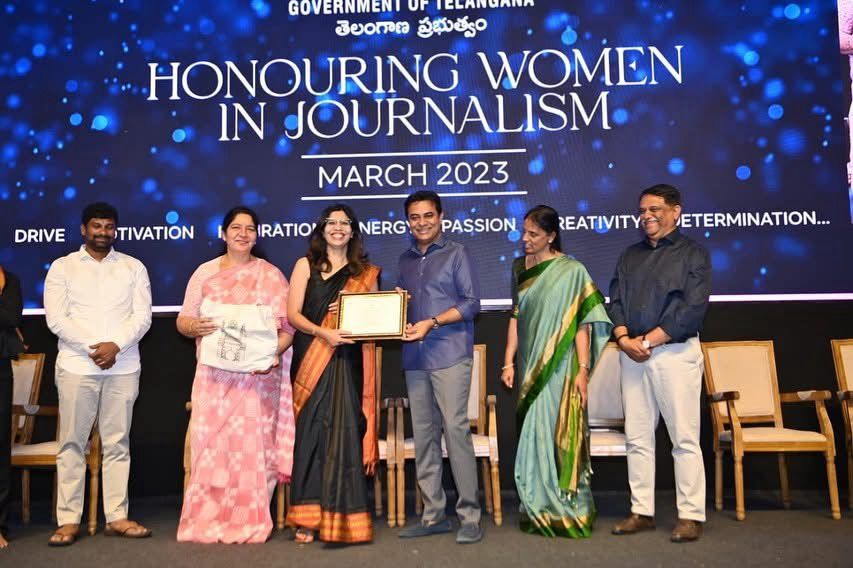
Over the years, thanks to my editor Krishna Prasad who let me cover a wide range of stories—from politics, technology, crime, health, civic issues. One important story I reported recently was about an IAS officer who was transferred while pregnant for refusing to bend rules. Stories like these matter because they shine a light on quiet injustices that would otherwise go unnoticed.
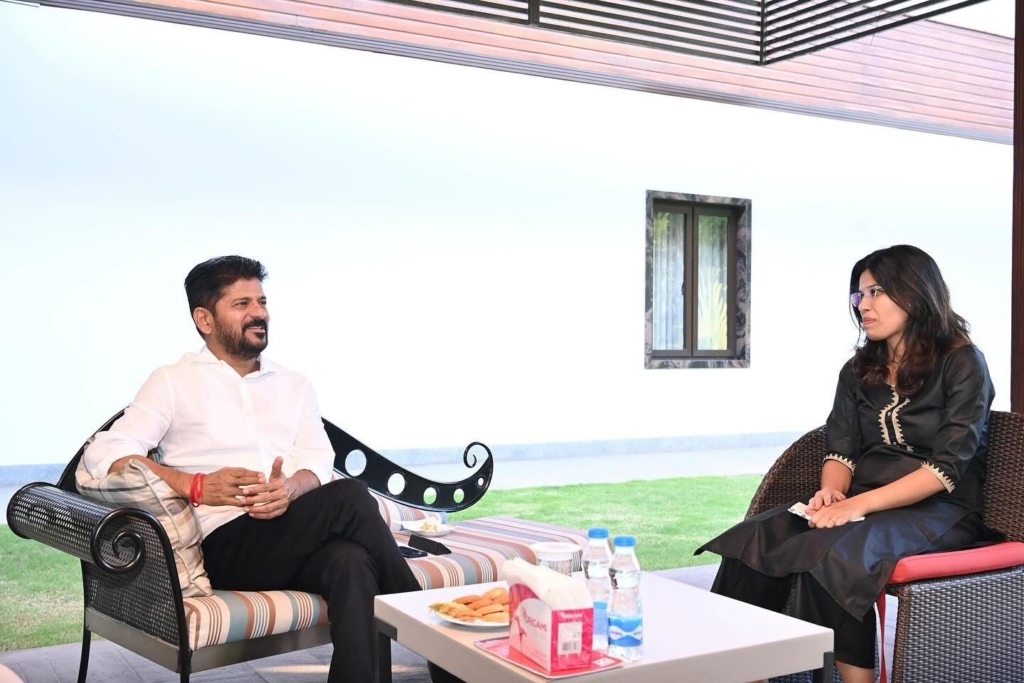
Today, I mostly report on politics. People often assume journalists are biased toward a person or a party. That’s the biggest misconception. Our job is to focus on facts. Every journalist has a beat—politics, education, health, cinema—and we report on developments within that scope. It’s not about taking sides. It’s about being accurate and fair.
One of the most demanding parts of the job is ground reporting during elections and padayatras.
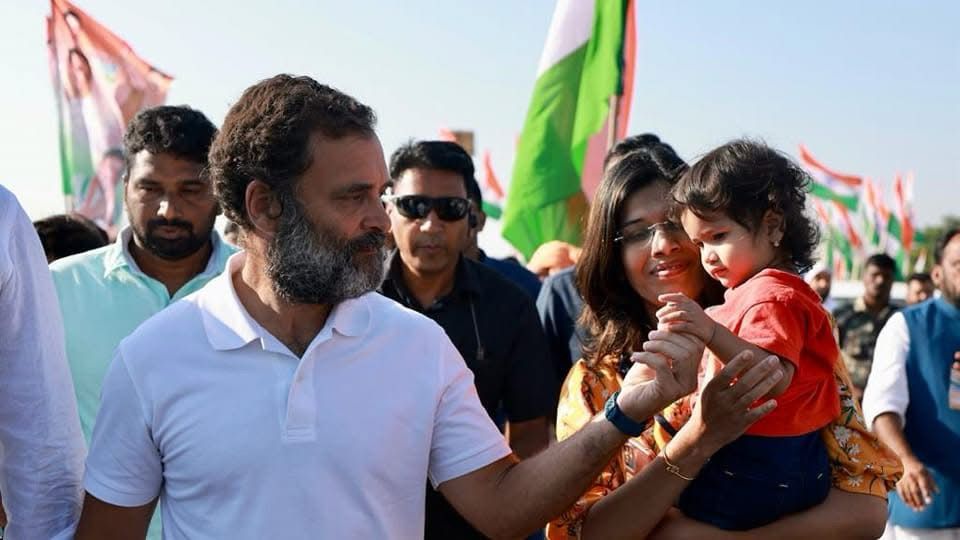
I’ve covered Rahul Gandhi’s, Bandi Sanjay’s, Revanth Reddy’s yatras, among several others often with my daughter in tow—from when she was less than a year old until she turned three. I didn’t want to compromise on either side, my work or my child. I travelled for interviews, attended events, and filed stories on the go while managing her.
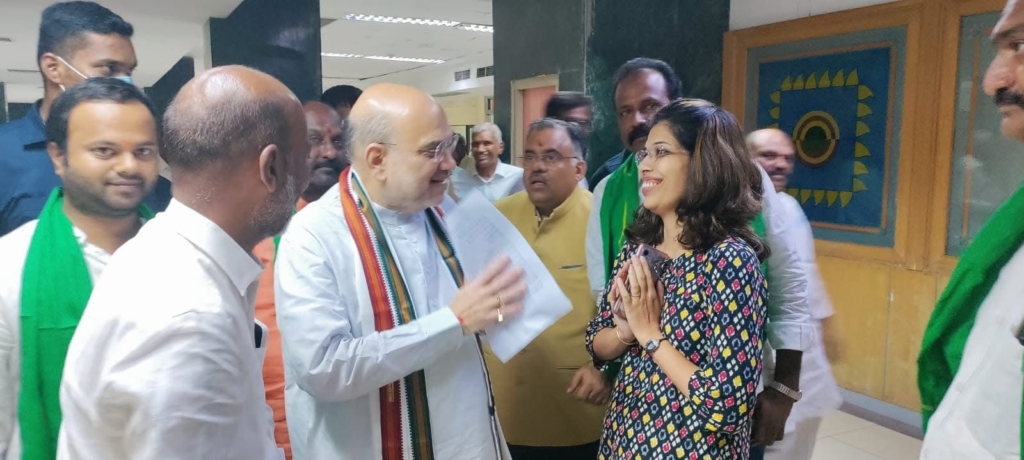
Even with tight word limits, we try to do justice to every story. There’s no such thing as positive or negative coverage. It’s only about facts. That’s what matters.
Even now, my family members aren’t entirely happy that I chose journalism. But I built everything from scratch and credit goes to my husband for always being there for me all throughout.
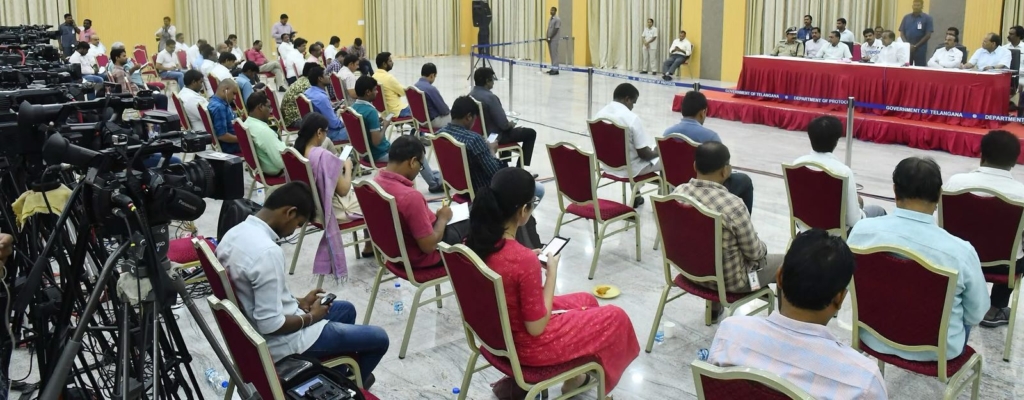
It’s a tough job. You start every day from zero. No one cares about the story you broke last week. You have to be on your toes and hunt for your next story. That’s journalism. And I still wake up wanting to chase the next one. That’s why I’m here.”
